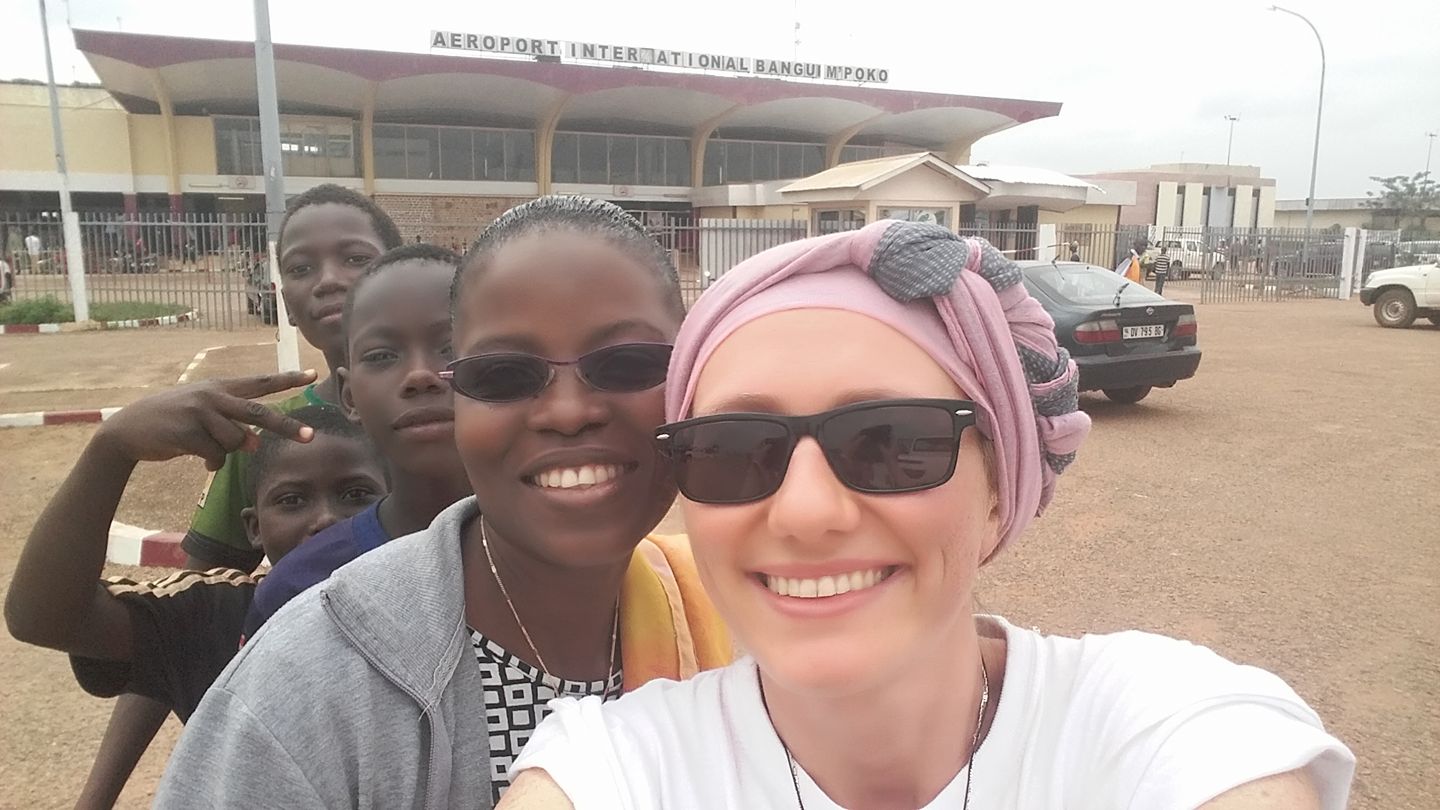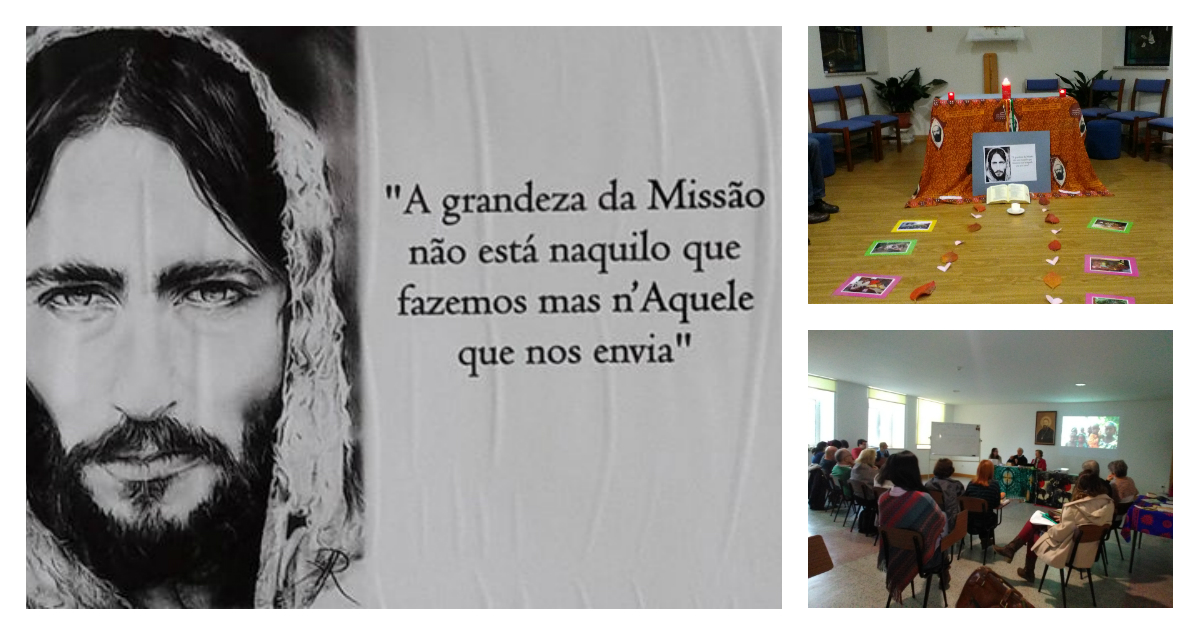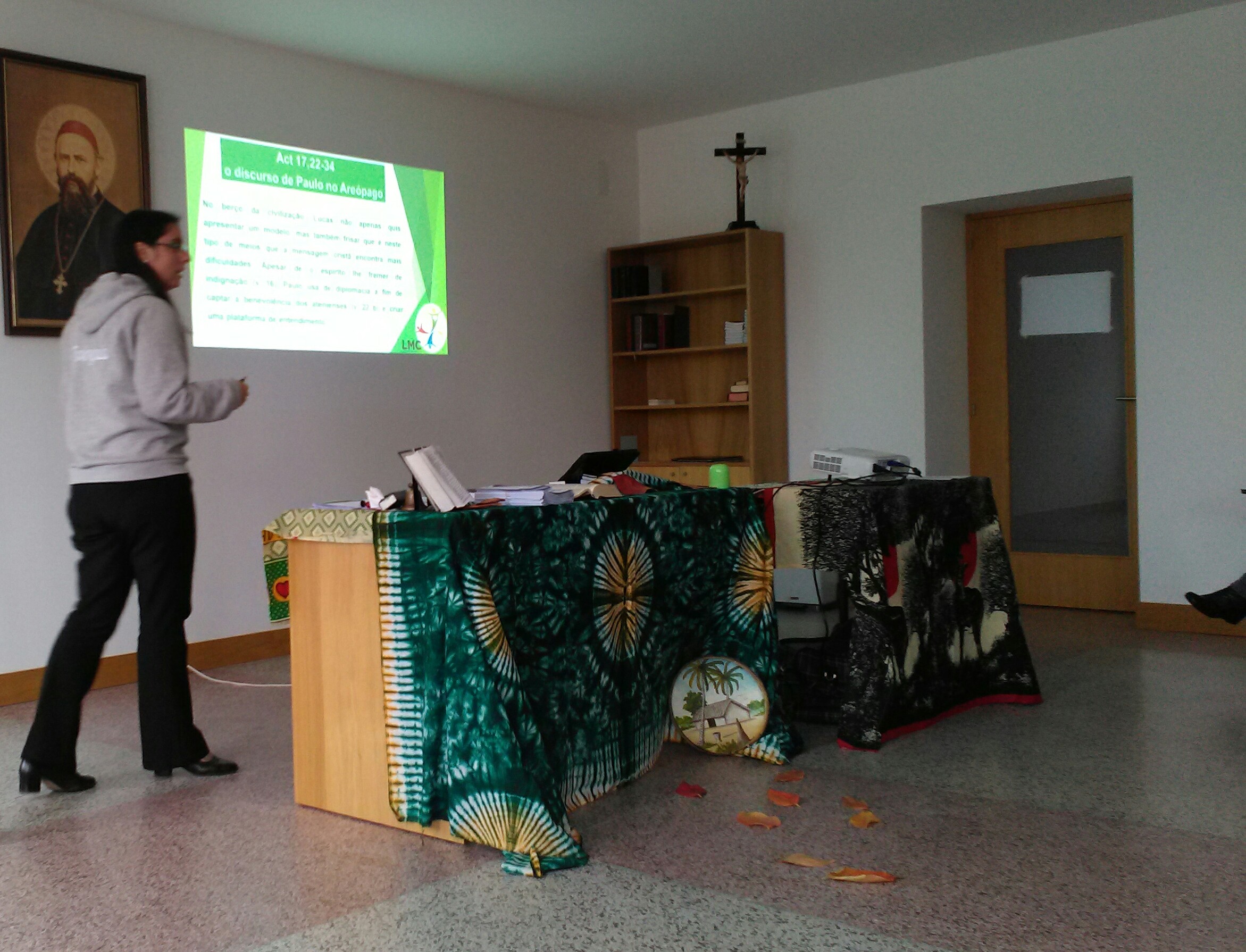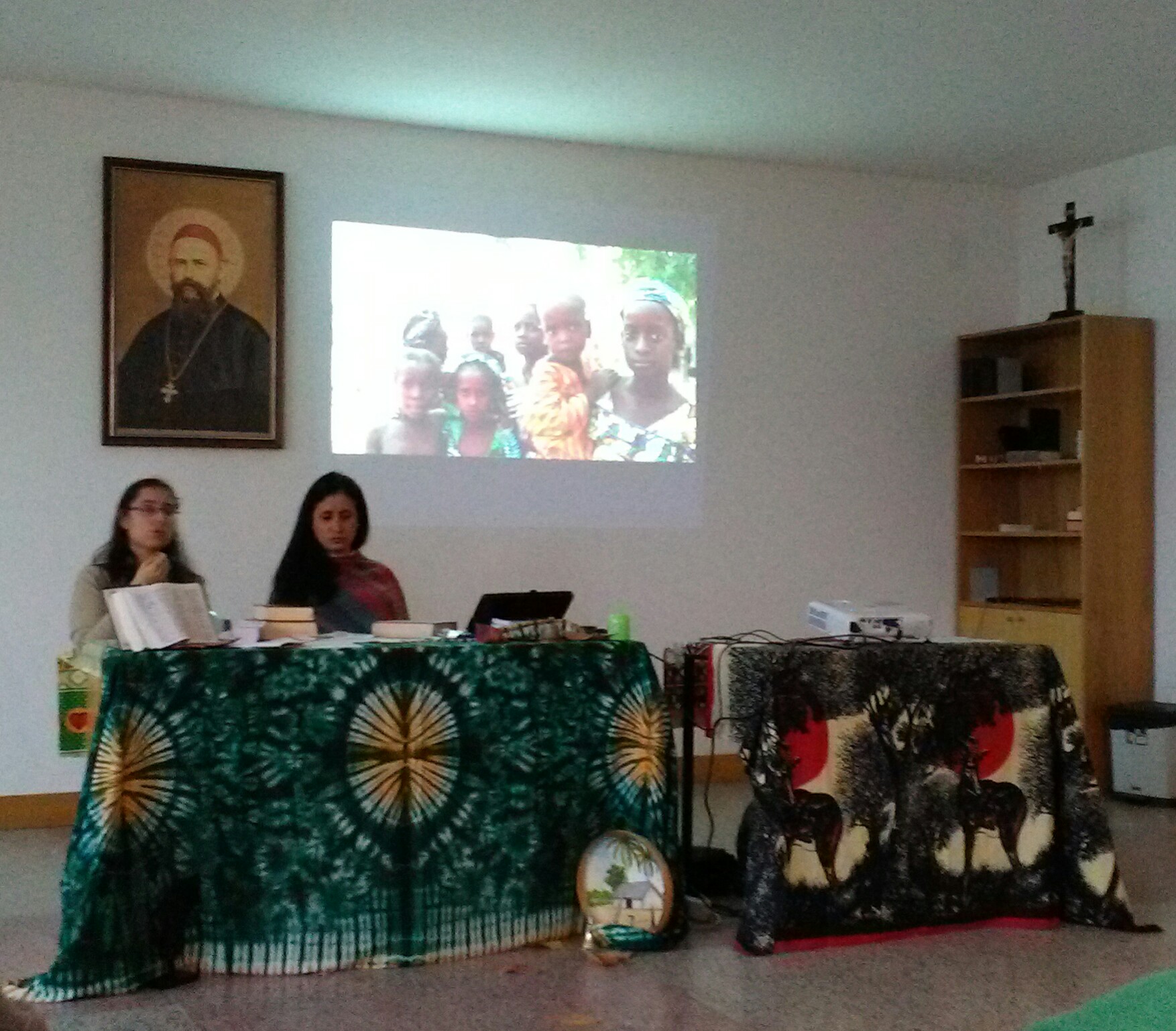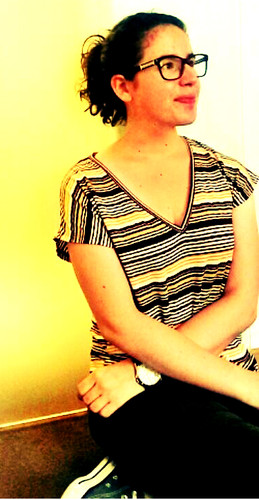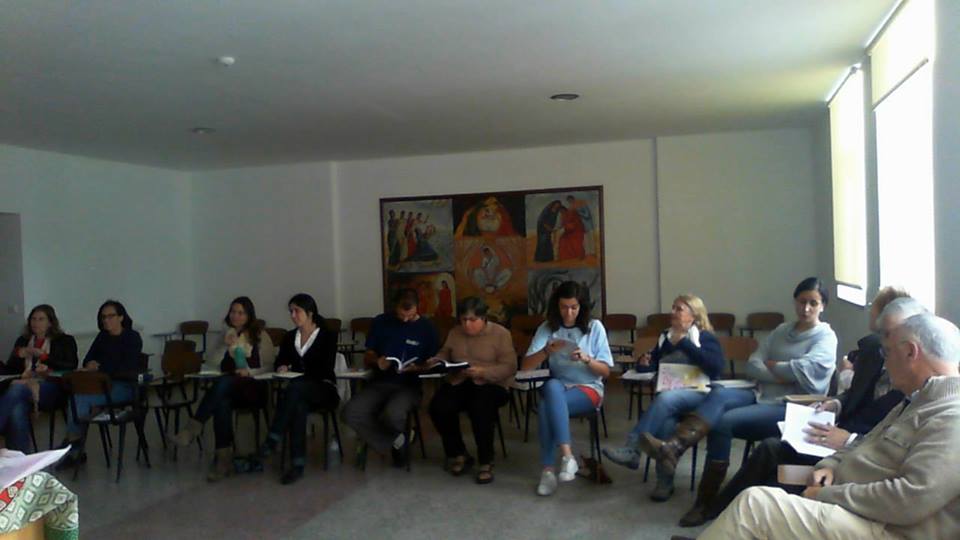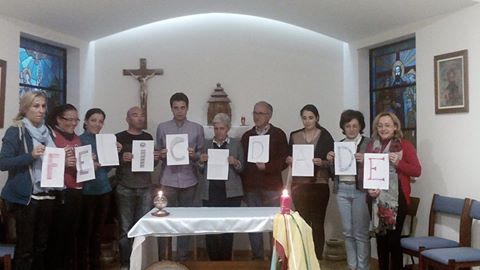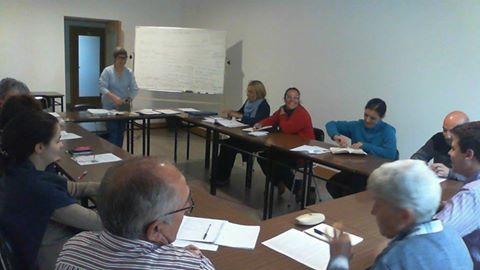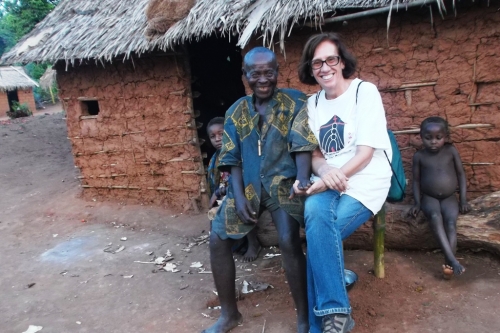 Elia María Cabrita Gomes was born in Paderne, Albufeira, Portugal on January 29 1955. She is a retired nurse. In 2006 she had her first contact with the African Continent when she took part in a seven month project sponsored by International Medical Assistance (IMA) in the democratic Republic of Congo (DRC). In 2011 she left for a two year stint with the Comboni Lay Missionaries (CLM) in the Central African Republic. She ended up staying in that mission for five years.
Elia María Cabrita Gomes was born in Paderne, Albufeira, Portugal on January 29 1955. She is a retired nurse. In 2006 she had her first contact with the African Continent when she took part in a seven month project sponsored by International Medical Assistance (IMA) in the democratic Republic of Congo (DRC). In 2011 she left for a two year stint with the Comboni Lay Missionaries (CLM) in the Central African Republic. She ended up staying in that mission for five years.
When she was barely 16 she was offered the possibility of having a two month experience in Angola, something she considered like “the spark that would fulfill a dream.” Unfortunately, her father did not approve and she did not go. All through her training as a nurse she kept on thinking about going out there, but when she completed her studies in 1976 she started working in the hospital of Faro, where she remained until her retirement, she married and has a daughter.
In 2006, she finally had her first experience when she joined a seven month project sponsored by the International Medical Assistance (IMA) in the democratic Republic of Congo (DRC). “It was just a seven months experience that stimulated me and increased my desire to return to Africa, to leave my comfort zone and go meet other peoples,” to share.
She started volunteering in the Hospice of her home parish of Paderne and there she soon discovered the Comboni Lay Missionaries (CLM) through the magazine Além-mar. “I completed my formation with the CLM (2008-2010, I got to know Comboni, his slogan “To Save Africa with Africa” was totally meaningful to me, just as the going out to meet the poorest and most abandoned, to contribute to the improvement of their quality of life and to human development,” she tells us.
She went for two years and stayed for five!
She arrived in Bangui, the capital of the CAR, specifically in Mongoumba, for a two year stay, “without expectations, ready to accept and give whatever the mission required of me.” She ended up staying for five years that included “very strong life experiences. The beginning were a time of apprenticeship: to look and listen, to learn how to live, to accept and respect, namely to take the first steps in a culture and customs so different from our own,” she says. Commenting about her assignment to Mongoumba, she tells us that it is the seat of one of ten municipalities in the district of Mbaiki: “It is a town of around 8,000 people located about 120 miles from Bangui, deep in the equatorial forest along the border with the DRC and Congo Brazzaville. The municipality of Mongoumba holds 25,000 people belonging to various ethnic groups, including the Aka pygmies. Pygmies are discriminated against by the rest of the people who use them as cheap labor. They are the most disadvantaged members of society and live in various camps spread around the forest. Most of them live in grass huts and only a few have homes built with mud or bricks. They eat what they find in the forest. Their goods are limited to what they can carry when they change camp or when they go deep into the forest for fishing seasons, gathering honey, caterpillars… products that they sell or exchange for salt, cloth to cover themselves and trinkets. They very seldom have money and whatever little they have is not enough to cover medical care.
Evangelization of the pygmies is the priority of the mission of Mongoumba and most of our activities are aimed at improving the way of life of the people and their social integration. Through our joint pastoral approach and working to raise awareness of and promote health care, I was able to visit many camps, visit the sick, free children from parasites. During the first two years, thanks to the cooperation of the French Army, we organized several campaigns for the treatment of “pian,” a contagious and incapacitating disease. I walk lots of miles in the forest… In a harsh reality that cannot be changed, one can only give some creative touches and hope that the seed that was sown will grow.
After several years of activity, where the mission acted like a bridge between the people and the health center, results are beginning to be visible and gratifying. The pygmies are still the last in line to be received, but they are nonetheless attended to and, when they have to be admitted they share the same quarters of the rest of the population.
During these five years, taking care of the pygmies who were hospitalized, so they would not be forgotten, was one of my tasks. It is very easy to forget giving medication or an injection to those who have no voice! In this activity, I could always count on the generous help of the health workers from our physical rehabilitation center at the mission. Most of our work consists in raising awareness of the fact that we are all persons, in Sango “Zo Zo kwe,” and as such we all deserve attention and respect.”
She tells us that, after the coup of March 2013 “the country was submerged in chaos and lived under the threat of arms for three years. The poverty and the suffering of the people reached unimaginable levels. Notwithstanding the presence of many NGOs, the Catholic mission is almost the only institution that continues to work steadily to defend and support the dignity of these long-suffering people, carrying on activities in education, health care, human promotion, pastoral concerns, justice and peace… During these last two years my greatest concern was to find and treat undernourished children, the education of parents on hygiene and nutrition. It was a tiring work, both physically and psychologically, but the reward was in each child who recovered and could smile again. I was able to work with a good team, made up of local people, available and interested.”
To go without expectations, top return full of dreams
She concludes saying that, even though she arrived in 2011 without expectations, she returns in 2016 with the dream of someday going back to the mission in the CAR and find “homes that will not be destroyed by rain, with roofs that will not be swept away by the wind; healthy, well fed children who own books and go to school; roads without potholes (including dirt roads) and means of transport that will link the villages, the towns and the cities; pygmies who know their duties and can fight for their rights; new laws that will ensure that “witches” do not go to trial, but their accusers and attackers will; health centers and hospitals run by fully educated doctors and nurses, where surgery, analyses and tests are performed, where sicknesses have a name and a cause, forgetting about the existence of mystical illnesses. I dream that I will find a country where the pillars of education, the teachers, actually are in school and have better than an 8th or 9th grade education; and because “God loves his people,” I believe that the hatred that is still existing will make room for a lasting peace in a climate of love and tolerance. It is my dream and hope that the riches of this land will not end up in the wallets of a few, but may be used to improve the quality of life for all.
You can’t have mission without love! I love the country and I love the people, a people who is suffering but continues to laugh, sing and dance. It is my people! The smallest among them I keep in my heart with great affection, remembering the children, their pure and sincere smiles will warm up my cold winter nights.”
Text by Catherine Anthony, FEC – Faith and Cooperation Foundation




